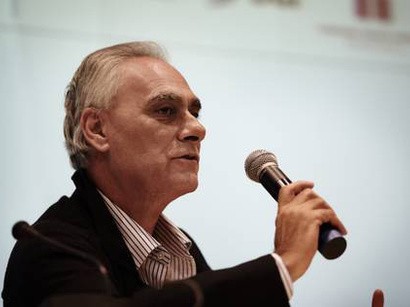Discontent is bubbling over among the majority Shi’a population in Saudi Arabia’s Eastern Province, home to the kingdom’s major oil fields and petrochemical industry. Disgruntlement is no less in the Iranian province of Khuzestan, where up to 90% of Iran’s oil reserves are located. Iranian Arabs, who account for approximately half of the four million inhabitants of Khuzestan, chafe at perceived cultural and ethnic abuse and repression.
The fact that dissatisfied minorities populate the oil-rich regions of Iran and Saudi Arabia creates an ironic parallel, in which in the rivalry between two of the Middle East’s larger powers often amounts to the pot calling the kettle black. Rather than recognising that protests and mounting incidents of violence are the result of government failure to address legitimate grievances, both Iran and Saudi Arabia have blamed each other for the unrest in their strategic backyards.
Pinpointing the kingdom’s vulnerability
It’s often hard to distinguish fact from fiction in the murky world of Middle Eastern politics. There is however little doubt that Saudi Arabia and Iran have an interest in kindling unrest in each other’s backyards. By the same token, discriminatory policies against and repression of minorities in both countries are at the core of discontent that could spiral out of control at any moment. Similarly, both Iran and Saudi Arabia could effectively prevent foreign meddling by adopting policies that ensure that their minorities are fully integrated as equals, rather than treated as potential fifth columns.
Integrative policies would also weaken the ability of jihadist groups like “Islamic State” from exploiting the sectarian divide. That is particularly true in predominantly Sunni Saudi Arabia, where the group that controls a swathe of Syria, and Iraq has thrice bombed Shi’a mosques in the last eight months. Two attacks in May that killed some 25 people prompted the kingdom’s minority, that constitutes 10%-15% of the kingdom’s population, to form a civil defence.
IS has since also targeted Saudi security forces to aggravate tension and demonstrate the kingdom’s vulnerability. The group boasted it was responsible for the bombing of a mosque inside a headquarters of the Saudi special forces.
The Shi’a civil defence groups reflect a widespread sentiment among Saudi Shi’as that the government has failed to protect its minority population. That sentiment is reinforced by prominent Saudi religious leaders depicting the Saudi air war in Yemen against the Shi’a Houthis as a just war, and the government’s projection of its military campaign as an assault on an Iranian proxy.
Shi’as feeling exposed
The Saudi Shi’a sense of exposure is exacerbated by the fact that a protest movement that started in 2011 at the beginning of the Arab popular revolts has largely been weakened by a harsh government response, that led to the shooting by security forces of some 25 Shi’a youths and the sentencing to death of a prominent Shi’a cleric, Nimr Al-Nimr. Not to mention, the Saudi-backed crushing of a predominantly Shi’a popular revolt in 2011 in neighbouring Bahrain.
Multiple checkpoints in predominantly Shi’a towns like Qatif, designed to pre-empt the eruption of protests, as opposed to relaxed security at Shi’a mosques in mixed Sunni-Shi’a cities in the Eastern Province, suggest to many Shi’as that the government is more concerned about securing the survival of the Saudi regime than ensuring the security of its Shi’a minority.
The government’s failure to act against hate speech, as well as the framing of its struggle with Iran for regional dominance in often anti-Shi’a terms, further calls into question what stake Shi’a Saudis have in a kingdom dominated by Wahhabism, a puritanical, anti-Shi’a interpretation of Islam. Wahhabism has meant that Shi’a Saudis are barred from serving in the military and security forces or working in the Interior Ministry, while school books describe Shi’as as rejecting core principles of Islam. Moreover, a Shi’a has yet to be elevated to a cabinet position and has only once in the kingdom’s diplomatic history been appointed as an ambassador.
Sitting in glass houses
In contrast to Saudi Arabia, Iran has been careful not to couch its regional battles or approach to minorities in sectarian terms. But rhetoric aside, Sunni Muslim grievances in Khuzestan constitute a mirror image of those of Shi’as in the Eastern Province. Iranian Arabs have long complained that the government has failed to reinvest oil profits to raise the region’s standards of living. The World Health Organization (WHO) identified Ahwaz in 2013 as Iran’s most polluted city.
The shadowy Movement for the Liberation of Al-Ahwaz has claimed responsibility for a series of attacks on Iranian security forces and other government symbols in recent months. Football brawls have quickly morphed into anti-regime protests. Emulating the 2011 self-immolation of Tarek Al-Tayeb Mohamed Bouazizi, the Tunisian fruit and vegetable seller who sparked the Arab revolts, an Iranian Arab vendor, Younes Al-Asakirah, set himself on fire earlier this year to protest the allegedly unlawful confiscation of his wares. The incident sparked a wave of protests that were squashed by security forces.
Given their political geographies, Iran and Saudi Arabia resemble two opponents sitting in glass houses throwing stones at one another. Disgruntled minorities and intermittent violence in their resource-rich provinces highlight their vulnerability. Their pursuit of discriminatory and repressive policies that are at the root of the Middle East’s multiple conflicts, and have turned inevitable political transition into a bloody, destructive process, undermine their claims of legitimacy in the struggle for regional dominance.
James M Dorsey is a Senior Fellow at the S. Rajaratnam School of International Studies (RSIS), Nanyang Technological University, Singapore and co-director of the Institute of Fan Culture of the University of Würzburg.




